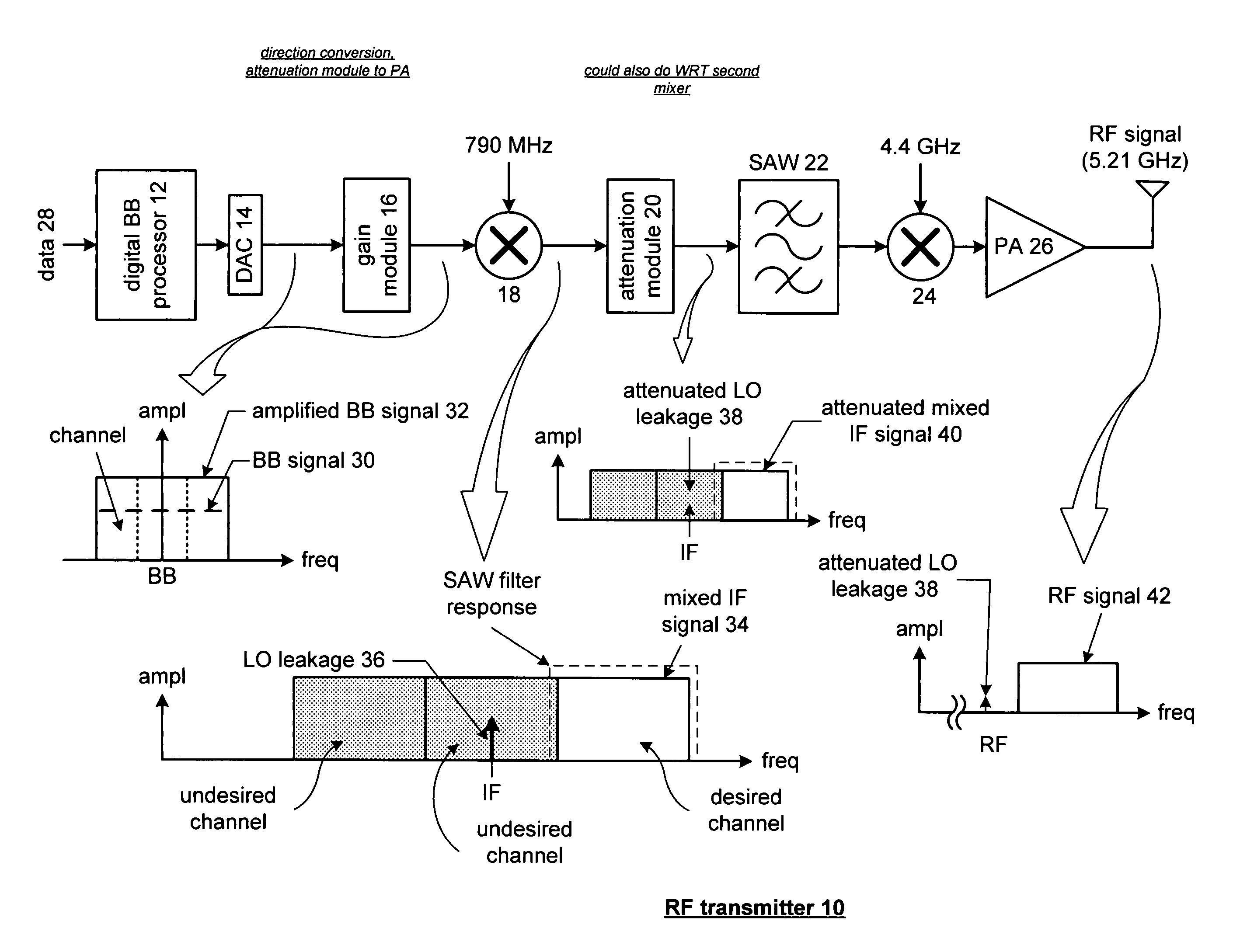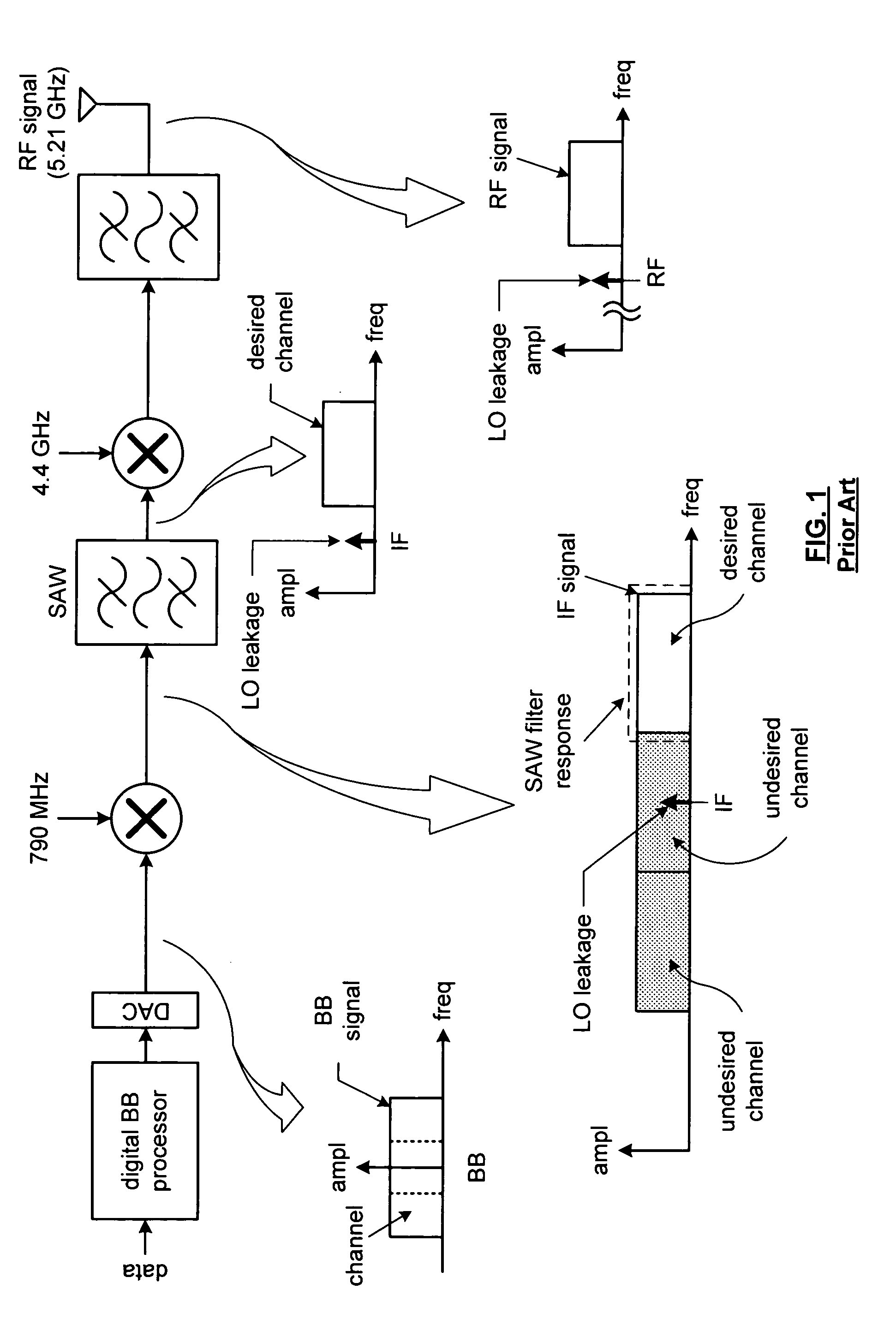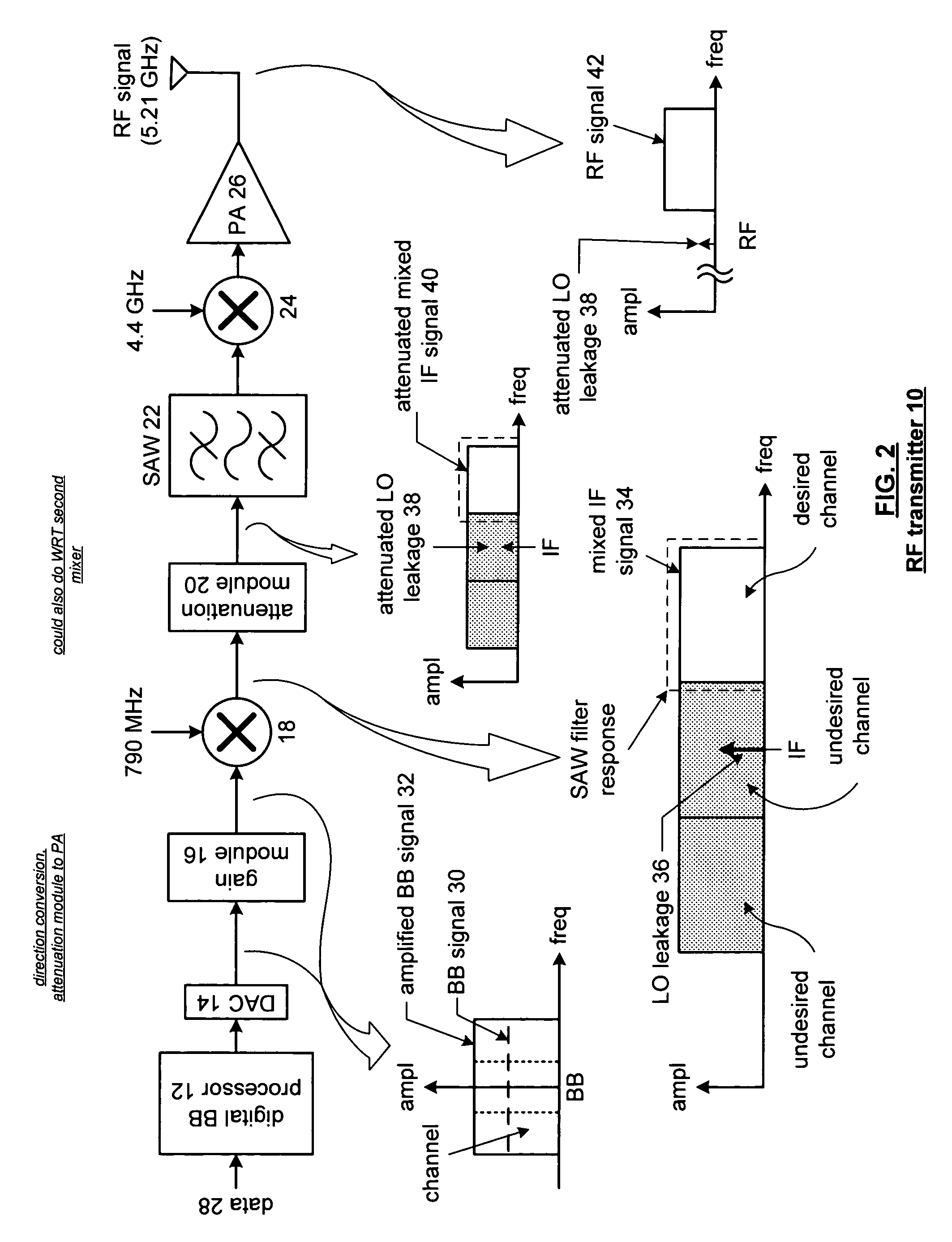Reducing local oscillation leakage in a radio frequency transmitter
a radio frequency transmitter and local oscillation technology, applied in the field of wireless communication systems, can solve the problems of adversely affecting the recapturing of data, data cannot be accurately extracted from the rf signal, lo leakage, etc., and achieve the effect of reducing lo leakage and signal strength reduction
- Summary
- Abstract
- Description
- Claims
- Application Information
AI Technical Summary
Benefits of technology
Problems solved by technology
Method used
Image
Examples
Embodiment Construction
[0015]FIG. 2 is a schematic block diagram of a radio frequency (RF) transmitter 10 that includes a digital baseband processor 12, a digital-to-analog converter 14, a gain module 16, a 1st mixing stage 18, an attenuation module 20, a surface acoustic wave (SAW) filter 22, a 2nd mixing stage 24, and a power amplifier 26. The digital baseband processor 12 is operably coupled to encode data 28 based on an encoding protocol as prescribed by one or more standards being supported by the RF transmitter 10. Such standards include, but are not limited to, IEEE 802.11a, IEEE 802.11b, IEEE 802.11g, Bluetooth, et cetera. The encoding includes, but is not limited to, forward error correction, interleaving, mapping, et cetera. The resulting digital baseband signal is then converted to an analog baseband signal via the digital-to-analog converter 14. Note that, as shown, the analog baseband signal 30 is a complex signal (i.e., includes an in-phase component and a quadrature component), which requir...
PUM
 Login to View More
Login to View More Abstract
Description
Claims
Application Information
 Login to View More
Login to View More - R&D
- Intellectual Property
- Life Sciences
- Materials
- Tech Scout
- Unparalleled Data Quality
- Higher Quality Content
- 60% Fewer Hallucinations
Browse by: Latest US Patents, China's latest patents, Technical Efficacy Thesaurus, Application Domain, Technology Topic, Popular Technical Reports.
© 2025 PatSnap. All rights reserved.Legal|Privacy policy|Modern Slavery Act Transparency Statement|Sitemap|About US| Contact US: help@patsnap.com



